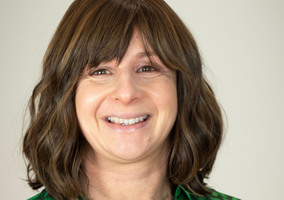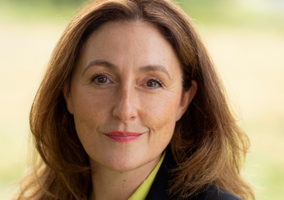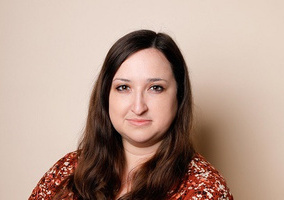Jakhya Rahman-Corey was 14 when she joined the charity sector, as a volunteer in her local Oxfam shop.
Born and raised in the UK, Rahman-Corey was inspired to “give back” after witnessing “extreme poverty” during a trip to Bangladesh, where her family is originally from.
There, she also saw “young girls in the village getting married quite early on and had this moment of questioning”.
“My parents always mentioned the struggles they faced coming from Bangladesh to the UK,” she says.
“They’ve sacrificed and given me and my siblings so much because they wanted us to have this better life. I have so much luck and opportunity – the life I have and parents who invested in my education and opportunities.”
Rahman-Corey studied economics at university and volunteered overseas before working for charities in Australia, Cambodia, Costa Rica and India.
Then in 2014, she joined Austrian jewellery company Swarovski’s new charitable trust as a programme officer.
By 2018, at the age of 30, she had risen to the position of director, which she has held since.
Organisation’s DNA
The Swarovski Foundation was set up in 2013 to “promote sustainable livelihoods through education to reduce inequality by supporting charitable initiatives and organisations focusing on equity, water, and creativity”.
Over the last decade, it has reported helping more than two million people in 93 countries through 85 partnerships and 17 global emergencies in pursuit of the United Nations’ Sustainable Development Goals.
The jewellery business provides most of the foundation’s income, which totalled £2.09m in 2022, through grants.
Rahman-Corey says her role involves honouring the philanthropic spirit of Daniel Swarovski, who founded the crystal business in 1895.
“Swarovski believed in philanthropy. He has this famous quote: ‘A precondition for your long-term success is that you endeavour to think not only of yourselves but also of your fellow human beings. Those who adhere to this condition will certainly be blessed with success.’ I find that so powerful.
“The DNA of the organisation was giving back. He and his wife had employees who had housing and health and their kids had kindergarten. It was very much this ecosystem of giving back.”
She says his descendants continued the jewellery business’s philanthropic work but felt “it wasn’t as organised and impactful as it could be”.
“That’s why they started the foundation, with this belief that if we can provide some structure and framework of giving back we can be accountable to give in pattern.”
‘Power imbalance’ between funders and grantees
The foundation offers “grants, advocacy and engagement” to its grantees “to fulfil our mission for a more inclusive and equitable society whilst creating protections for the environment”.
Rahman-Corey says the foundation has to collaborate with its funding recipients to have a more significant and lasting impact.
“Unfortunately, there is a power imbalance between funders and organisations on the ground and to recognise that goes back to the object of the grant-giving body – what is it trying to achieve?”
She gives the example of her time in 2012 when she was working as a programme officer for Cambodian HIV/AIDS Education and Care (CHEC), an NGO in the Asian country.
CHEC had asked its funder whether it could adapt to meet the needs of beneficiaries, but the latter just wanted it to continue its programme delivery as previously agreed.
“There was a disconnect and I vowed that if I were ever in a position as a grant funder, I would never not listen to the voices of our charity partners,” Rahman-Corey says.
“We as an organisation work with charities overseas and they’re the experts who can say: ‘These are the needs and this is how it’s going to be.’
“There has to be a dialogue. We should always have this question – if you’re a grant-giving body, why do you exist? If the true intention is creating impact, it’s then working with charities and organisations, recognising that they are the experts on the ground.”
Unconscious biases
As a young woman of colour in a leadership position in the charity sector, Rahman-Corey recognises that she has felt “unconscious biases”.
“Upon meeting someone, there’s often an unconscious tendency to make assumptions. From my personal experiences, there have been times I have encountered these assumptions as a young woman of colour in a senior position.
“Whilst there is that aspect, when given the opportunity to talk I always feel I’m able to present my passion and integrity in that respect.”
She says she has numerous “allies” within the foundation and the business and sees herself as a “bridge between these two worlds”.
“I have significant support from colleagues who champion me.
“There were women before me who sent the ladder down that enabled me to climb up and I want to send that as well. The importance of diverse voices is necessary. I’m very grateful I’m surrounded by people who have been great allies.”
Rahman-Corey says she has never experienced imposter syndrome but accepts that it exists and there is a narrative about how women should feel.
“I’m deeply passionate about this work and feel hugely accountable. Having amazing team members and allies who say: ‘Jakhya, you’re the right person.’ I take that with gratitude.
“It’s about having more of those faces and voices in these spaces to say: ‘Irrespective of my age and background, I come here with experience, knowledge and passion. I will be determined to achieve the goals and the targets of the organisation.’”
‘We have to do things collectively’
Reflecting on the first decade of the foundation, Rahman-Corey says she is proud of what it has achieved and the progress it has made.
She says the foundation has a clear strategy and is not squeamish.
“We’re going out there saying: ‘This is what we want to do. And we know we can’t do this alone.’
“So, whilst we’re going out there, we’re being accountable for this goal and feel our greatest assets are our partnerships. And it leverages this aspect of collective community.
“If we did things in silos, it wouldn’t be achievable. We have to do things collectively.”












